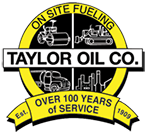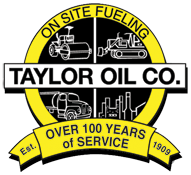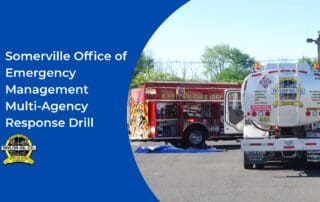Somerville OEM Response Drill
On Saturday, May 10, 2025 the Somerville, NJ Office of Emergency Management (OEM) conducted a multi-agency emergency response drill. Taylor Oil Co. was invited to participate by loaning one of our tanker trucks for use in the simulated incident. The drill brought together a wide range of response teams, including police, fire, rescue/EMT, emergency communications units, CERT (Community Emergency Response Team) members, and community volunteers. Participants represented multiple municipalities, including Somerville, Raritan, Montgomery, Martinsville, and Branchburg, NJ. The simulated scenario involved a school bus and a Taylor Oil Co. tanker truck, that was making a fuel delivery, that were halted on the roadway following a minor traffic incident. During the staged scene, a rubbernecker crashed into the back of the school bus, resulting in multiple injuries and one fatality. Police were the first to arrive, securing the area and coordinating the response. Fire and rescue teams followed shortly after. Their first priority was to assess and treat the injured while inspecting the tanker truck for any potential leaks or hazards. One of the most complex parts of the drill involved extricating the trapped driver of the car. Using the “Jaws of Life”—a hydraulic rescue tool—first responders removed the car [...]




